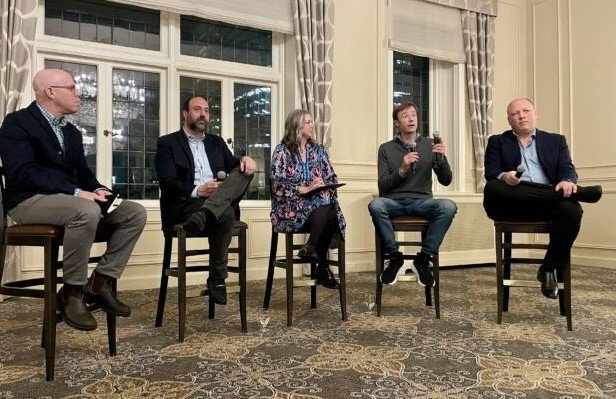The impact of AI and deepfakes on politics is worrying misinformation researchers
From left: Boaz Ashkenazy, CEO of Simply Augmented; Ryan Calo, UW law professor; Rachel Smith, CEO of Seattle Chamber; Jevin West; UW information school professor; and David Frockt, former Washington state senator. (GeekWIre Photo / Taylor Soper)
GeekWire
A robocall created with artificial intelligence that impersonated President Joe Biden and targeted voters in New Hampshire earlier this month is just the latest example of how rapidly advancing AI tools are a growing threat to elections — and more broadly to society.
Deepfakes such as the Biden robocall or fake recordings in Slovakia’s elections last year are worrying misinformation researchers and political experts as AI is democratized and used to create multimodal content — not just doctored text and images, such as the Taylor Swift deepfakes, but also audio and video.
And when multiple pieces of fake content related to the same subject are pushed out, it can create a more believable narrative.
“You can imagine building a universe in the last days leading up to an election that looks convincing,” said Ryan Calo, a University of Washington law professor and tech policy expert. “That’s the kind of thing that Jevin and I lose sleep over.” MORE

